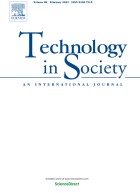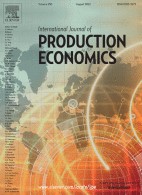
The advent of blockchain technologies is transmuting the way conventional supply chains are being managed. Due to the complexity of dealing with many actors involved in the supply chain networks, contemporary supply chains have limited visibility, transparency, and accountability.
COVID-19 pandemic is the worst humanitarian crisis that economies across the globe have witnessed. Forced lockdowns, social distancing, and restricted mobility have contributed to large scale disruptions in the supply chain network.

The Port of New York and New Jersey has been ranked the third-busiest U.S. seaport for years, trailing behind Los Angeles and Long Beach. But 27 consecutive record-setting months at the East Coast facility catapulted it into the No. 2 slot for 2022.
The purpose of this research is to analyse the current body of knowledge on the relationship between the COVID-19 pandemic and its implications for global supply chains and their management

The COVID-19 pandemic has challenged supply chains more seriously challenged than ever before. During this prolonged global health crisis, supply chain managers were forced to rely primarily on solutions developed for limited and foreseeable crises

The supply chain consists of those activities associated with manufacturing from raw material acquisition to final product delivery

There is now widespread appreciation of the critical role played by supply chains in the global economy. Supply chains are dominant concerns for many organizations, governments, policy makers, and consumers

The ever-growing concern of sustainability and survivability attracts academicians and practitioners to develop strategies and supply chain capabilities that cater to the challenges and helps in achieving the sustainability development goals
